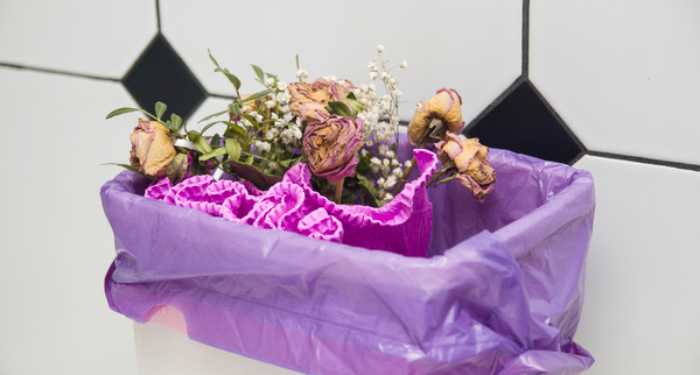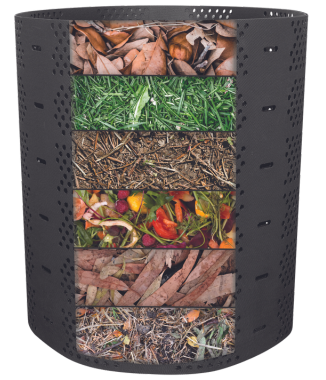How to Compost Valentine’s Day Flowers and Reduce Waste
Posted February 6, 2025Show Your Love for the Planet This Valentine’s Day
Every year, approximately 250 million roses are grown for Valentine’s Day in the United States alone. While these beautiful blooms symbolize love and affection, most end up in the trash just days later, contributing to landfill waste. But there’s a better way to honor your love and the Earth—by composting your flowers instead of throwing them away.

Can You Compost Cut Flowers? Yes! Here’s How
Composting is an eco-friendly way to repurpose organic waste into nutrient-rich soil, reducing methane emissions from landfills while enriching your garden. Instead of tossing your fading bouquet, turn it into plant food with these simple steps.
Step 1: Remove Non-Organic Materials
Before adding flowers to your compost bin, check for any non-compostable elements such as:
- Ribbons, bows, plastic wrap, or decorative wires
- Floral foam, which is non-biodegradable
- Synthetic dyes, which may have been used to color the flowers
Step 2: Maintain the Right Green-to-Brown Ratio

A well-balanced compost pile should follow a 3:1 ratio of brown to green materials to promote efficient decomposition.
- Green materials (1 part): Fresh flowers, fruit and vegetable scraps, coffee grounds, eggshells
- Brown materials (3 parts): Dried flowers, leaves, shredded paper, small twigs, cardboard (without glossy coating)
If your flowers are fresh and wilting, they add nitrogen and should be classified as green materials. If they are dried out, they contribute carbon and count as brown materials.
Maintaining this 3:1 balance helps regulate moisture levels and prevents odors in your compost pile.
Step 3: Maintain and Turn Your Compost Bin
- Mix flowers with other organic material to build up your compost.
- Turn the pile every few weeks to aid decomposition.
- Keep moisture levels balanced—it should feel like a damp sponge
With proper maintenance, your compost will break down in a few months, creating nutrient-rich soil for your garden.
Why Composting Flowers Matters
- Reduces landfill waste – Keeps millions of flowers out of landfills each year.
- Minimizes greenhouse gases – Organic waste in landfills produces methane, a major contributor to climate change.
- Creates natural fertilizer – Enriches soil without synthetic chemicals.
- Encourages sustainable habits – Small changes add up to a big environmental impact.
Other Eco-Friendly Valentine’s Day Ideas
Make your celebration more sustainable with these simple swaps:
- Choose locally grown flowers to reduce carbon emissions from transportation.
- Gift a potted plant instead of cut flowers for a longer-lasting, zero-waste option.
- Buy fair trade chocolates to support ethical and sustainable production.
- Send digital or recycled paper cards to reduce paper waste.
This Valentine’s Day, show love beyond the bouquet. Compost your flowers and make a lasting impact on the planet.
Want to learn more? Check out our Beginner’s Guide to Composting for expert tips.

